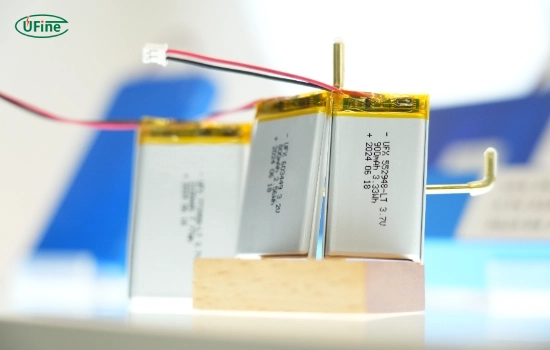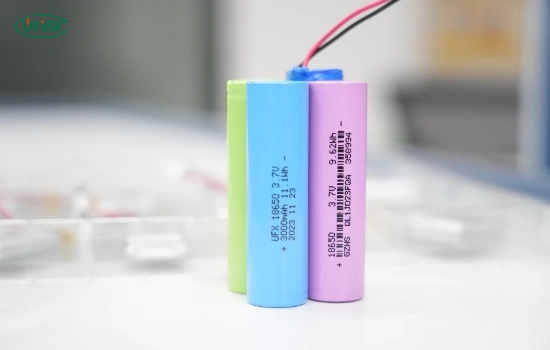
- Part 1. What are the different types of batteries available for alarm clocks?
- Part 2. What factors should you consider when choosing a battery for your alarm clock?
- Part 3. How do you determine the right size battery for your alarm clock?
- Part 4. What are the advantages of using lithium batteries for alarm clocks?
- Part 5. How do you maintain your alarm clock battery for longevity?
- Part 6. What are the signs that your alarm clock battery needs replacement?
- Part 7. How do you safely replace the battery in your alarm clock?
- Part 8. What are the top brands of alarm clock batteries?
- Part 9. FAQs
Choosing the correct battery for your alarm clock ensures it functions reliably and efficiently. With various battery types available, it’s essential to understand the differences and select the best option that meets your needs. This article will guide you through choosing the ideal battery for your alarm clock, covering various battery types, factors to consider, and maintenance tips.
Part 1. What are the different types of batteries available for alarm clocks?
Regarding alarm clocks, the type of battery you choose can significantly impact performance and longevity. Here are the most common battery types used in alarm clocks:
Alkaline Batteries
These are the most widely used batteries in alarm clocks due to their availability and affordability. They provide a good balance of performance and cost but may not last as long as other types. Alkaline batteries are particularly suitable for devices that require moderate power consumption.
Lithium Batteries
Lithium batteries are an excellent choice for alarm clocks requiring consistent performance because they have long shelf life and reliability. They are more expensive but can last several times longer than alkaline batteries. Lithium batteries also have a higher energy density, which means they can store more energy in a smaller size, making them ideal for compact devices.
Nickel-Metal Hydride (NiMH) Batteries
These rechargeable batteries are eco-friendly and cost-effective in the long run. They have a lower energy density than lithium batteries but can be a great option if you prefer rechargeable solutions. Users who frequently change their batteries benefit from NiMH batteries, as they can recharge them multiple times.
Nickel-Cadmium (NiCd) Batteries
Although less common due to environmental concerns, some alarm clocks still use NiCd batteries. They are rechargeable and perform well in low temperatures. Still, they suffer from the “memory effect,” which can reduce their capacity over time. This makes them less desirable for long-term use compared to newer technologies.
Sealed Lead-Acid (SLA) Batteries
Larger alarm systems typically use SLA batteries, not commonly found in standard alarm clocks. However, they provide excellent performance and longevity for more complex systems, making them suitable for advanced alarm systems that require backup power.
Part 2. What factors should you consider when choosing a battery for your alarm clock?
Selecting the correct battery for your alarm clock involves considering several key factors to ensure optimal performance:
- Battery Type: As discussed, different types of batteries offer various advantages and disadvantages. Choose one that aligns with your usage patterns and preferences.
- Capacity: A battery’s capacity, measured in milliampere-hours (mAh), indicates how long it can power your alarm clock. Higher-capacity batteries last longer, making them a better choice for frequent use. For example, a battery with a capacity of 2000 mAh will typically last longer than one with 1000 mAh under similar conditions.
- Voltage: Ensure the battery voltage matches your alarm clock’s requirements. Using a battery with the wrong voltage can damage the clock or lead to malfunction. Most alarm clocks require 1.5V or 9V batteries, so checking the specifications is essential.
- Shelf Life: If you don’t use your alarm clock frequently, consider a battery with a longer shelf life, such as lithium, which can last for years without losing charge. Emergency clocks, which may be used sparingly, particularly benefit from this.
- Rechargeability: If you prefer an eco-friendly option, consider rechargeable batteries. While they may have a higher upfront cost, they can save you money over time and reduce waste.
- Brand Reliability: Opt for batteries from reputable brands known for quality and reliability. This can help avoid issues with performance and safety. Well-established brands often invest in research and development to improve battery technology.
Part 3. How do you determine the right size battery for your alarm clock?
Choosing the correct size battery is essential for ensuring proper fit and function. Here’s how to determine the right size:
- Check the User Manual: The easiest way to find the correct battery size is to consult your alarm clock’s user manual, which typically specifies the battery type and size.
- Look at the Current Battery: If replacing an old battery, remove it and check its size and type. Most batteries have their specifications printed on them.
- Common Sizes: Familiarize yourself with standard battery sizes used in alarm clocks, such as AA, AAA, C, D, and 9V. Knowing these sizes can help you make an informed decision.
Part 4. What are the advantages of using lithium batteries for alarm clocks?
Lithium batteries have become increasingly popular for alarm clocks due to their numerous advantages:
- Longer Lifespan: Lithium batteries generally last longer than alkaline batteries, providing consistent power for extended periods. Alarm clocks used daily particularly benefit from this longevity.
- Lightweight: They are lighter than other battery types, making them ideal for portable alarm clocks. This can be a significant advantage for travel or battery-powered models.
- Temperature Resistance: Lithium batteries perform well in extreme temperatures, ensuring your alarm clock operates reliably in various environments. This feature is handy for outdoor or travel alarm clocks.
- Low Self-Discharge Rate: These batteries retain their charge for extended periods, making them ideal for clocks people don’t use daily. This means you won’t have to worry about replacing the battery frequently.
Part 5. How do you maintain your alarm clock battery for longevity?
Proper maintenance can significantly extend the life of your alarm clock battery. Here are some tips:
- Regularly Check Battery Levels: Check the battery levels regularly, especially if your alarm clock has a low battery indicator. Replace batteries promptly to avoid leaks.
- Avoid Mixing Battery Types: Using different types or brands of batteries in the same device can lead to performance issues and potential damage. Always use the same kind of battery for optimal performance.
- Store Batteries Properly: If you have spare batteries, store them in a cool, dry place away from direct sunlight and heat sources. This can help prevent premature degradation.
- Remove Batteries When Not in Use: If you plan to store your alarm clock for an extended period, remove the batteries to prevent leakage and damage. This is especially important for alkaline batteries, which are prone to leaking.
Part 6. What are the signs that your alarm clock battery needs replacement?
Recognizing the signs that your alarm clock battery needs replacement can prevent unexpected failures. Look for these indicators:
- Inconsistent Timekeeping: If your alarm clock frequently loses time or resets itself, it may indicate a weak battery. This can be frustrating, mainly if you rely on your clock to wake you up.
- Dim Display: A dim or flickering display can indicate low battery power. If the clock is difficult to read, it’s time to check the batteries.
- Alarm Malfunctions: The battery may need replacing if your alarm fails to sound or operates intermittently. This could lead to missed alarms, which can be detrimental to your schedule.
- Corrosion or Leakage: Inspect the battery compartment for any signs of corrosion or leakage, which can damage the clock and pose safety risks. If you notice any corrosion, clean it carefully with a dry cloth and replace the battery immediately.
Part 7. How do you safely replace the battery in your alarm clock?
Replacing the battery in your alarm clock is a straightforward process, but it’s essential to do it safely:
- Turn Off the Alarm Clock: To avoid electrical issues, ensure the alarm clock is turned off before replacing the battery.
- Remove the Battery Cover: Locate and gently remove the cover, usually found on the back or bottom of the clock.
- Please take out the Old Battery: Carefully remove the old battery, taking note of its orientation (positive and negative ends).
- Insert the New Battery: Place the new battery in the same orientation as the old one, ensuring a snug fit.
- Replace the Battery Cover: Securely replace the battery cover and turn the alarm clock back on.
Part 8. What are the top brands of alarm clock batteries?
Several brands are known for producing high-quality batteries for alarm clocks. Here are some of the top contenders:
- Duracell: Renowned for its reliability and long-lasting performance, Duracell offers a wide range of battery options. Their alkaline batteries are prevalent for everyday use.
- Ufine Battery: Ufine specializes in lithium-ion batteries, known for their high energy density and long lifespan. We design our batteries to provide consistent power, making them an excellent choice for alarm clocks that require reliable performance.
- Energizer: Another trusted name, Energizer batteries are known for their durability and consistent power output. Their rechargeable options are also popular among environmentally conscious consumers.
- Panasonic: Panasonic provides high-quality rechargeable batteries, making them an excellent choice for eco-conscious consumers. Their NiMH batteries are particularly well-regarded for their performance and longevity.
- Rayovac: Rayovac batteries offer affordable options and are famous for everyday use. They provide good performance at a competitive price point.
- AmazonBasics: For budget-conscious consumers, AmazonBasics batteries provide decent performance at a lower price point. They are suitable for those who need a reliable battery without breaking the bank.
Part 9. FAQs
-
What type of battery is best for an alarm clock?
Lithium batteries are often considered the best due to their long lifespan and reliability. However, alkaline batteries are also a popular choice because they are affordable. -
How often should I replace my alarm clock battery?
It depends on the battery type and usage. Generally, alkaline batteries should be replaced every 6-12 months, while lithium batteries can last up to several years. -
Can I use rechargeable batteries in my alarm clock?
Yes, as long as the alarm clock is compatible with rechargeable batteries like NiMH. Check the user manual for specifications. -
What happens if I use the wrong battery type?
Using the wrong battery type can damage your alarm clock or cause it to malfunction. Always ensure the battery matches the required specifications. -
How can I dispose of old batteries safely?
Old batteries should be disposed of at designated recycling centers or collection points to prevent environmental harm. Check local regulations for proper disposal methods.
Related Tags:
More Articles

How Long Do Rechargeable AA Batteries Last?
How long do rechargeable AA batteries last? Compare NiMH and lithium AA lifespan, recharge cycles, key factors, and performance vs alkaline batteries.
12V STD vs 12V AGM: Meaning, Differences, and Which Is Better
Understand what STD and AGM batteries mean, their key differences, and which 12V battery fits your needs best in 2026.
Battery Reconditioning Explained: A Comprehensive Guide
Learn what battery reconditioning is, how it works, how long it takes, and when reconditioning chargers are used for lead-acid and lithium-ion batteries.
Recommended 10 Best Batteries For Smoke Detectors
Compare the best batteries for smoke detectors in 2026. See which 9V lithium and alkaline batteries last longest and perform best in smoke alarms.
Triple A Battery Voltage: Everything You Need to Know
How many volts is a AAA battery? See a clear AAA battery voltage chart, compare alkaline, lithium and NiMH cells, and learn how voltage affects device use.




